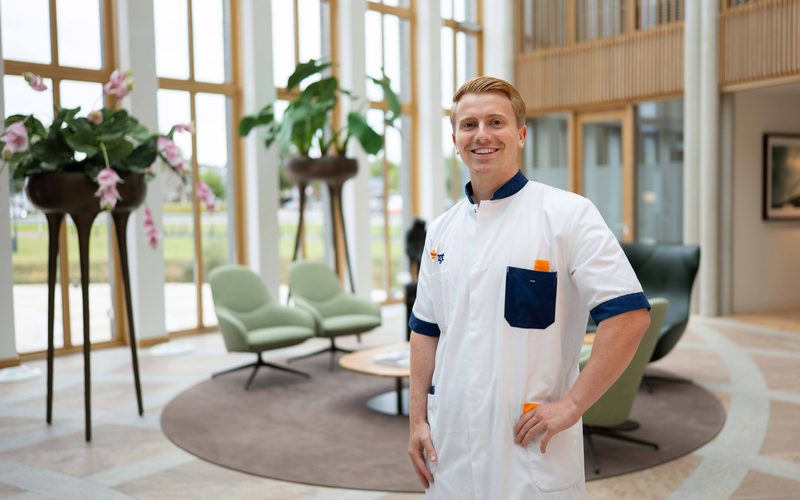Reggeborgh Research Fellowship
Together with MST and ZGT hospitals, we have launched a unique research programme for talented medical technologists. Under the name Reggeborgh Research Fellowship, we want to further enhance Twente's profile as a leading technological region, invest in healthcare innovations and retain talent for Twente.
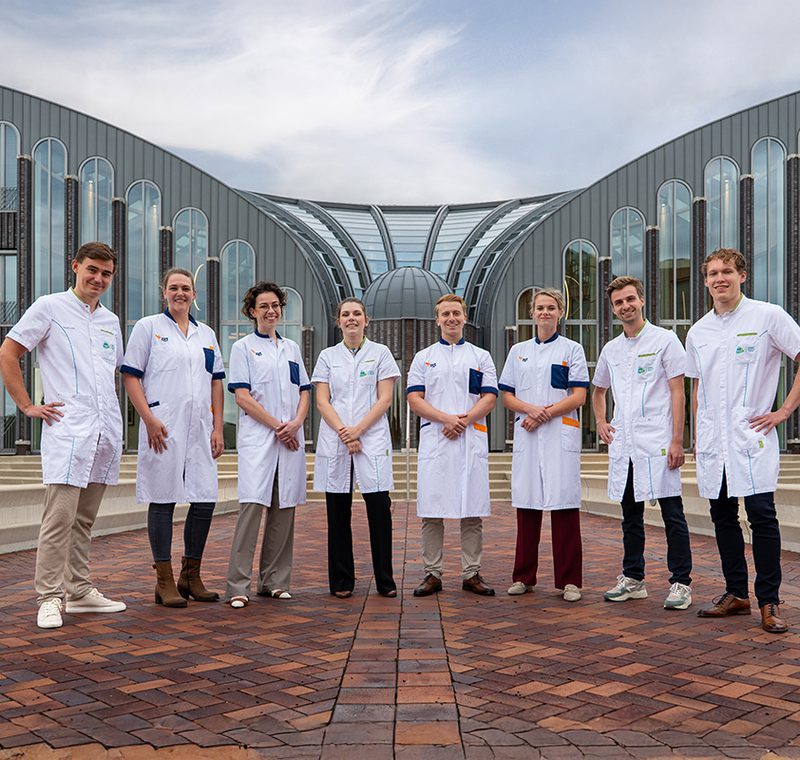
Reggeborgh Research Fellowship offers talented doctors and technical physicians the opportunity to conduct applied scientific research at one of Twente's top clinical hospitals. The research fellowship lasts three years and is a tailor-made training and development programme. In this way, MST and ZGT, together with us, are giving medical technology care in Twente a boost.
The first cohort of research fellows started in 2023 and the initial research results look promising.
“The demand for healthcare is increasing, resources are limited, and Twente is also facing a shrinking working population. Healthcare is facing a major challenge. It needs to become smarter and more innovative. In Twente, we are making a difference by investing in healthcare, technological innovation and talented young people through this fellowship. This is good for healthcare, for our patients and for Twente.”
- Ad Claassen bestuursvoorzitter medische staf ZGT en chirurg
Twente: a region at the forefront of technology
Ad Claassen, chair of the medical staff at ZGT and surgeon: "The demand for healthcare is increasing, resources are limited, and Twente is also facing a shrinking working population. The healthcare sector is facing a major challenge. It needs to become smarter and more innovative. It needs to change. Medical technology can help with this. Science and innovation contribute to the quality, availability and affordability of medical care. In Twente, we are making a difference by investing in healthcare, technological innovation and talented young people through this fellowship. This is good for healthcare, for our patients and for Twente."
MST board member Miriam Vollenbroek-Hutten adds: ‘Medical technological innovations enable faster diagnostics, more complex procedures and remote care. With the fellowship, we can continue to offer high-quality and innovative care to patients in the region, both now and in the future.’
Emilie Kroeze-Klaver
Emilie works as a technical physician at MST. For Reggeborgh Research Fellowship programme, she is working at the Neurocentre, where she is investigating how technical innovations and AI can improve the diagnosis and treatment of patients with epilepsy.
Jaimy Simmering
Jaimy is a technical physician and worked as a postdoctoral researcher at the University of Twente after obtaining her PhD. Her research aims to improve pelvic floor care by optimising the added value of medical imaging and making it clinically available to patients with pelvic floor problems at ZGT.
Mattiènne van der Kamp
Mattiënne is a technical physician who recently obtained her PhD from the University of Twente and worked in paediatrics at MST. As a Reggeborgh Research Fellow at MST, he will conduct research into the use of eHealth in paediatric asthma care. Previous studies in children with asthma show that care can be organised more efficiently and effectively, with high quality of care, through the use of an innovative eHealth care pathway (PufferApp).
Dieuwke van Dartel
Dieuwke is a technical physician and, as a Reggeborgh Research Fellow, she will be conducting research into hip fractures at the Centre for Geriatric Traumatology. Dieuwke aims to incorporate scientifically researched innovations into the care of vulnerable elderly people with broken hips. By optimising the care provided to elderly patients with broken hips, the quality of this care should improve.
Four new fellows, four innovative research projects
The Reggeborgh Research Fellows focus on innovations that directly contribute to better patient care in Twente. The new fellows are conducting research into the causes of sleep apnoea, how remote care for patients with chronic skin conditions can be organised, how the results of complex foot surgery can be improved, and how blood flow in tissue during skin reconstruction and non-healing wounds can be objectively and reliably visualised. The projects are therefore closely aligned with current issues in hospital care.
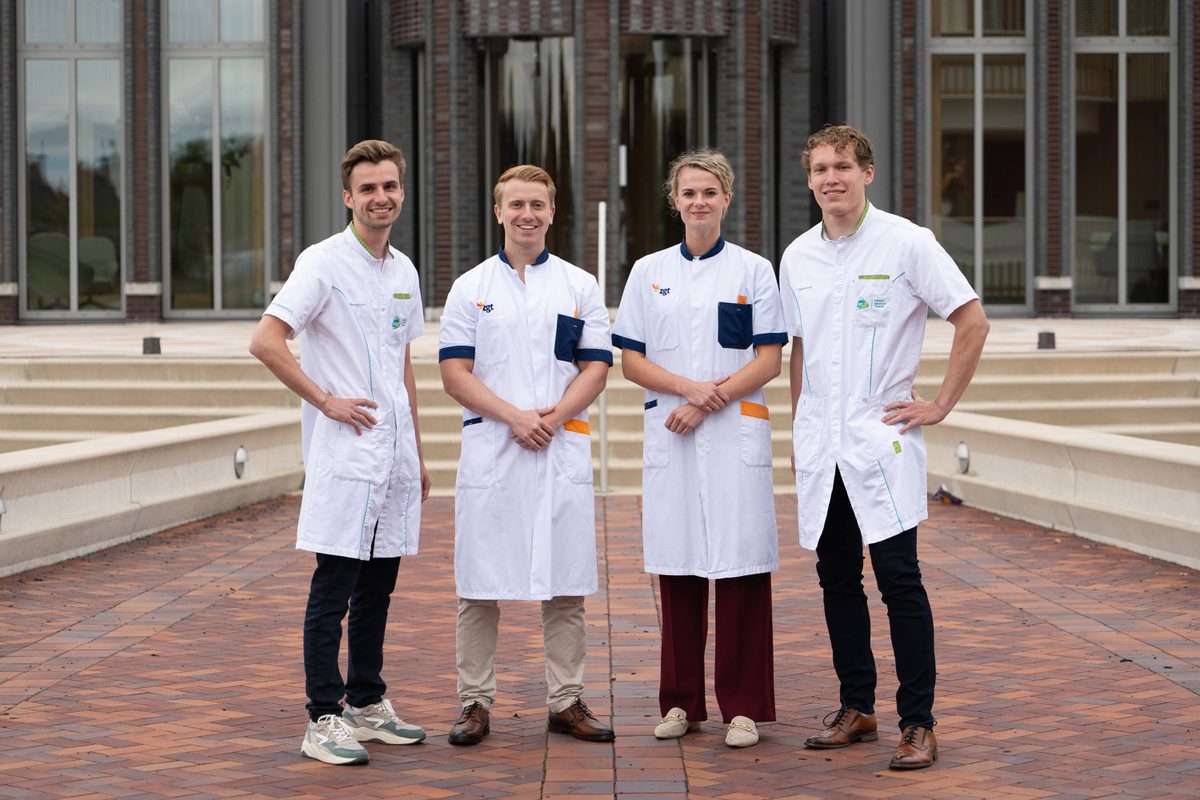
Second cohort: Reggeborgh Research Fellows
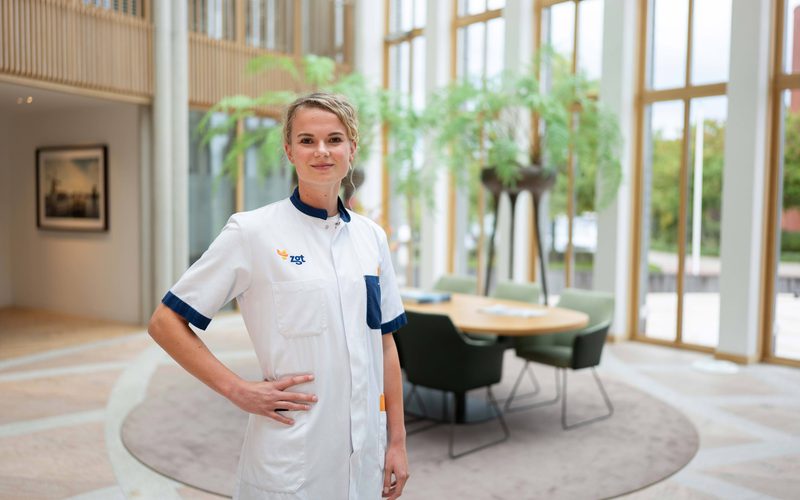
Sam Kroezen
For Twentse Voet, an intensive collaboration between the trauma surgery department of ZGT, the orthopaedics department of MST and the University of Twente, Sam will continue to develop the research programme “De Twentse Voet” using biomechanical models and 3D technology. By creating a 3D model of the desired end result prior to the operation, this can help the surgeon to achieve this more effectively during complex foot surgery.
Tim Heuker of Hoek
Tim will be conducting research into sleep apnoea at the pulmonary medicine department of MST. He will be investigating the underlying causes of sleep apnoea. In addition, he will be working on the development of customised, 3D-printed sleep apnoea masks. In doing so, he will contribute to more personalised and effective diagnostics and treatment.
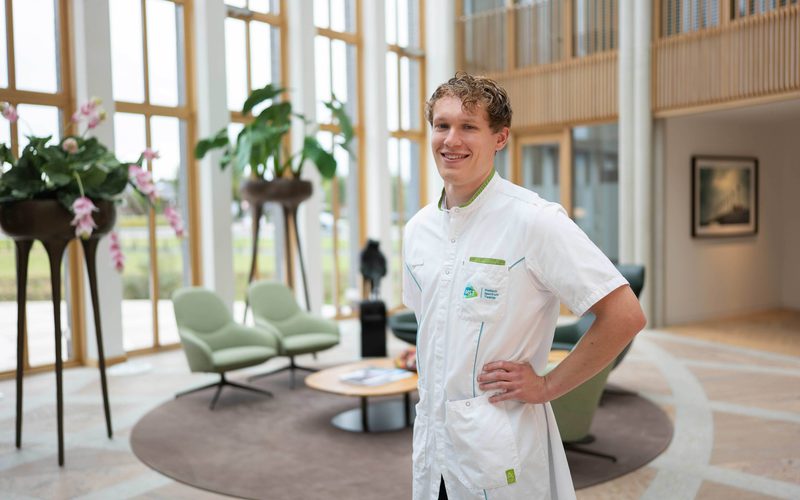

Jelle Steentjes
At the Fluorescence Imaging Lab at MST, Jelle will be working on objectively and reliably imaging tissue perfusion in skin reconstructions and non-healing wounds, among other things, in order to improve the outcomes of surgical procedures. He will be making an important contribution to translating innovative imaging into practical applications.
Bram de Kinderen
Bram will be applying technological innovations, such as eHealth and AI, at the dermatology department of ZGT and MST to improve care for people with chronic skin conditions. He is contributing to the development of a digital care platform that, combined with AI, can transform existing treatment programmes into flexible, high-quality remote care: at home when possible, in hospital when necessary.
